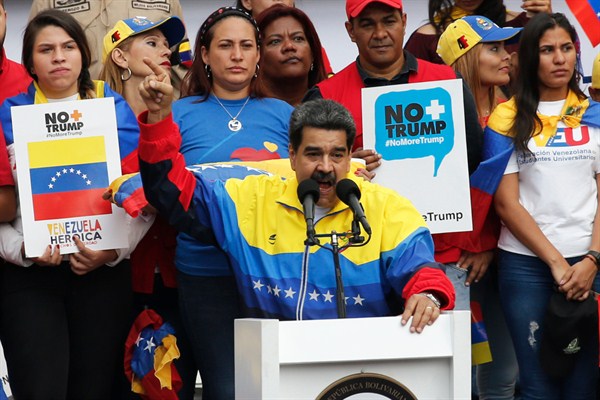The day after he fired John Bolton, President Donald Trump was explaining to reporters at the White House why he had ousted his third national security adviser. Among other reasons, Trump said he “disagreed with John Bolton on his attitudes on Venezuela—I thought he was way out of line.”
It was a surprising remark because, while Bolton is a well-known hawk, when it comes to Venezuela, Trump has been openly proposing the use of U.S. military force against President Nicolas Maduro’s regime since early in his presidency. So the comment must have been welcome news in Caracas, since it appeared to suggest that Trump has turned decisively against that hawkish approach to Venezuela.
Perhaps the experience of the past few months had caused the president to pivot. Anyone who expected U.S. policy on Venezuela to quickly result in Maduro’s ouster is surely disappointed, including Trump. Eight months after the dramatic announcement that the United States, along with dozens of other countries in the Americas and Europe, recognized opposition leader Juan Guaido as the rightful interim president of Venezuela, there is no sign that Maduro is going anywhere. The anticipated mass defections from the Venezuelan military failed to materialize, and another round of mass protests against Maduro fizzled out.

